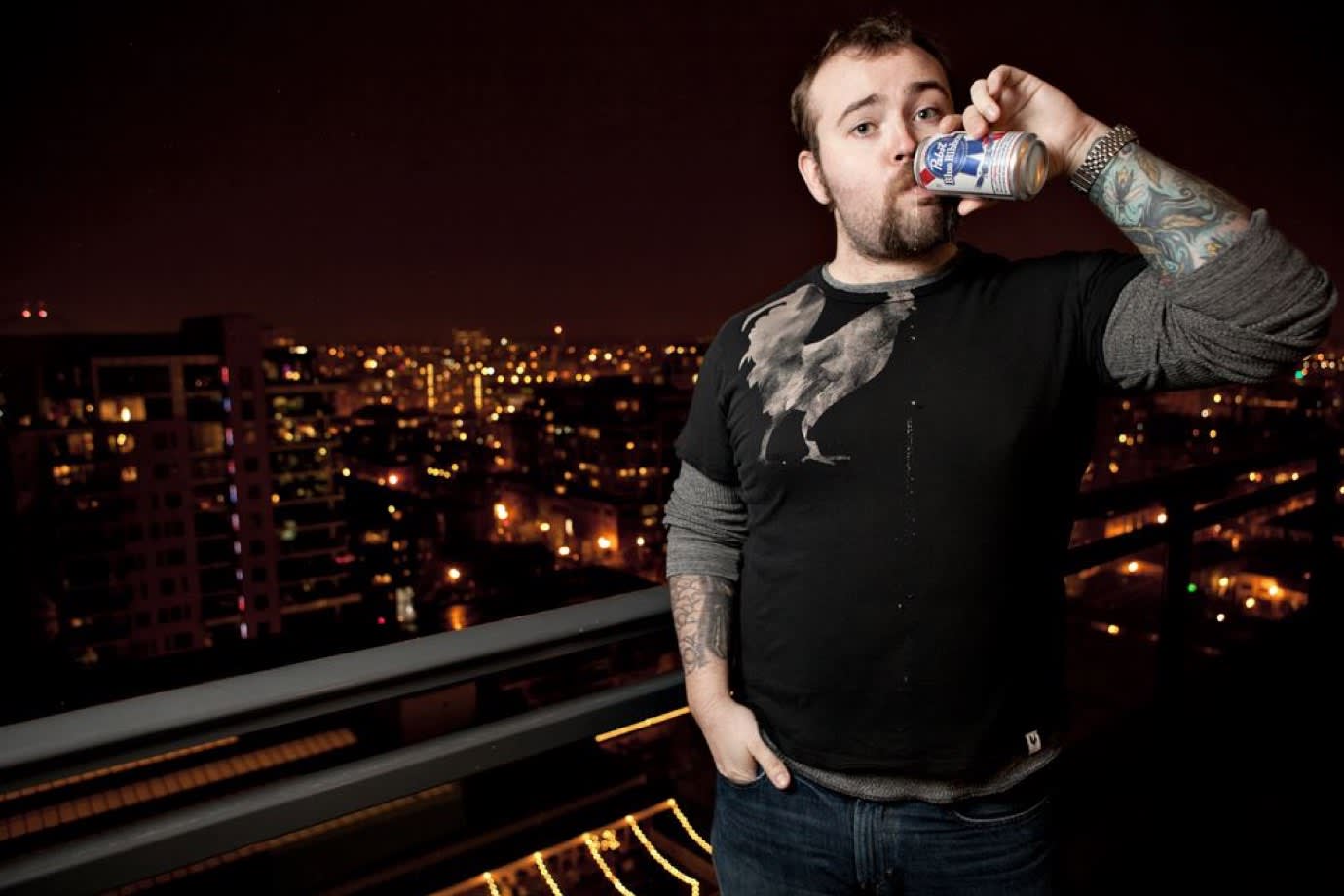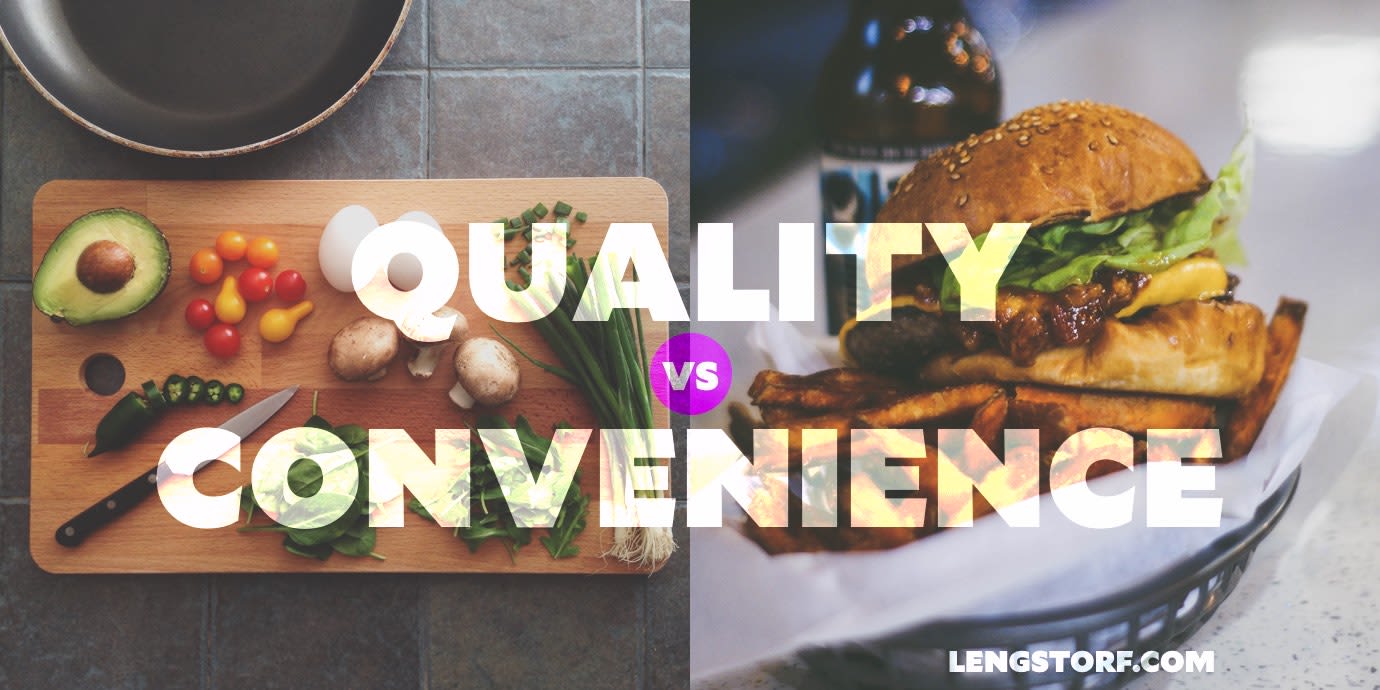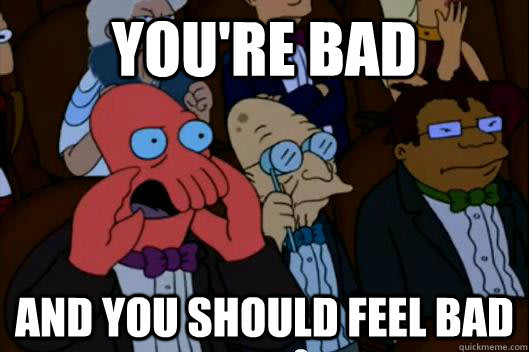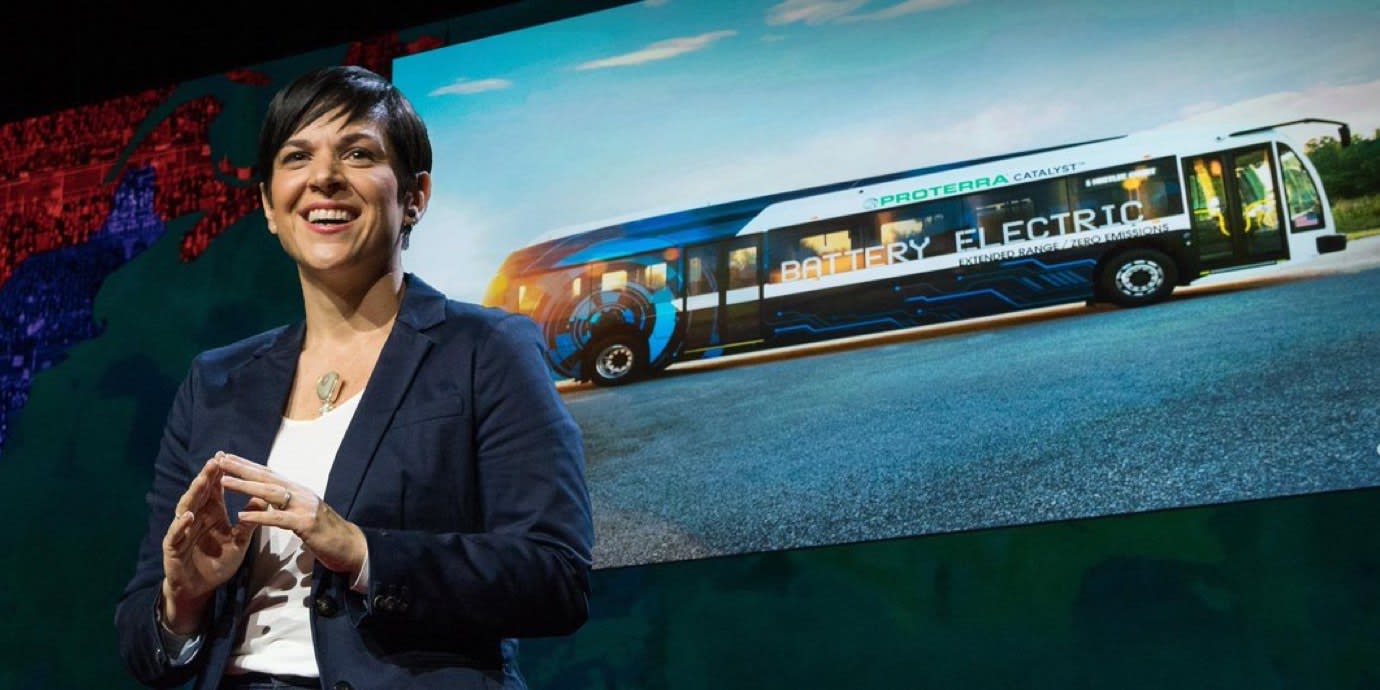Make the Right Thing the Easy Thing: Better Choices by Default
Why is it — even though we KNOW what’s right — we often end up taking shortcuts and doing the wrong thing? Here’s how to be your best self, every time.

For a year or so, I lived on the top floor of a fancy building in Portland's Pearl District.
This place was dope: giant balcony, concrete floors and walls for soundproofing, a 24-hour concierge — this was the kind of place where I signed the lease and thought, "Clearly I've now arrived, and Jay-Z will be calling any minute to discuss how our lives are very different but equally awesome."

But there was a catch. I was scared to take out my recycling.
It wasn't scared-for-my-safety scared. Or scared-because-it's-dark-and-there-might-be-a-monster scared.
No, nothing like that.
I was scared someone might see me.
Because here's the thing: across the hall from my front door was a closet, and that closet had a trash chute. This was extremely convenient.
The recycling, on the other hand, was a sixteen-floor elevator ride down, and then you had to carry the recyclables, like, a hundred feet to the dumpster. This was extremely inconvenient.
Now, look: I don't hate the planet. I like the planet. I would very much like for it to continue to be habitable for human beings.
But also, who’s going to change out of pajama pants and put on shoes just to get rid of a couple cardboard boxes, amirite?
I did make an effort — at least at first. But after a while, I rationalized it: There's probably someone who sorts the trash anyways, right? I'm creating jobs! I'm a goddamned American hero!

Eventually I just started taking out the boxes late at night in hopes I wouldn't see anyone in the hallway. I'd be safe from judging eyes. Eyes that would see me stuffing recyclables into the trash chute like one of those people — you know the type — who drives a Hummer with vanity plates that say ERTHFKR and tosses styrofoam cups out the window like confetti in a parade.
I'm not a dick — I'm lazy
Why would I consciously accept guilt and shame just to save myself a couple minutes of inconvenience?
I could — and did — blame the building for its lack of forethought in designing the trash rooms.
I could — and did — come up with numerous other excuses: this was a failure of the management! the system! humanity in general!
But, despite my rationalization, this was my failure. I could have done the right thing, but I did the wrong thing anyways. Because the wrong thing was easier, and I'm lazy.
Less obviously, though, is something more interesting: this was a completely predictable failure.

In the long run, convenience always wins.
The frustrating trend in my life is that I will nearly always end up doing the most convenient thing.
- Despite all the shit I talk about great coffee, given a choice between instant coffee at home and walking 35 minutes in oppressive heat for a really good cup of coffee, most mornings I'd end up making the instant coffee.
- Even though I've seen the documentaries and read the studies, after a particularly stressful day I'd go to a McDonald's in Japan instead of a local restaurant because I didn't have to think about the menu.
This list could go on for days — I have dozens of examples of me making poor-but-convenient decisions, and I don't expect that this is a trend that will stop any time soon.
After all, I'm writing this early in the morning, and my willpower is high, so right now I'm up on my high horse and judging my past self. But check in with me at 8pm most days and I'll do just about anything to avoid having to make an effort.
So we're just hosed, then?
Of course not. But we have to start looking at the problem differently.
In each of these situations where I did the wrong thing:
- I was completely aware of what the right thing was
- I logically understood that I wanted to do the right thing, and that the right thing would make me happier
- I also knew that I'd feel shame and/or guilt about doing the wrong thing
And yet I did the wrong thing anyways.

I could chalk this up to me being a weak person with shitty willpower, but that's not particularly productive. But if we look a little deeper and Find The Why another, more useful thread shows up: these decisions are born out of convenience, not ignorance or malice.
So I'm not choosing to throw recyclables in the trash because I don't want to recycle; I'm doing it because I don't want to deal with the hassle of going to the recycling room when there's a hole I can toss it down right here.
I'm not choosing McDonald's over a local izakaya because I prefer fake cheese and extra preservatives; I'm eating there because the izakaya would require me to translate a menu and decide between unfamiliar preparations of ingredients, whereas McDonald's will serve me a 100% predictable meal with zero mental effort.
Make the right thing the easy thing
The fact that people default to convenience over doing the right thing might sound discouraging at first, but it's actually great news.
It means people aren't stupid or cruel; they're just lazy.
So if we're aiming to change behavior — whether it's our own behavior or the behavior of other people — we don't need to convince them that something is The Right Thing To Do.
Instead, we just need to make it easier to do the thing we want done than to do anything else.
We need to Make The Right Thing The Easy Thing™.
Okay, but how does that actually work?
Theoretically, this all sounds great. But can this really work in practice? How do we make it easier to study math than to not study math?
And let me be the first to admit that this is not a miracle cure for all the world's problems. But I do think that this is a powerful tool that can change an unproductive, negative feeling — "I'm shitty and I have shitty willpower" — into a productive, positive solution: "I need to make it easier to do this the right way."
And I think this works on and individual basis and at global scale.
Another way to think about this is that we’re “smoothing the path”, or creating our mise en place to give ourselves the best chance at success.
An anecdotal example: smoking.
You could argue that cigarette use is decreasing because more people know how bad it is for them, but I don't know if I believe that.
I'd argue that cigarette use in the U.S. has declined for two reasons:
- People will openly scold you for smoking now.
- It's really fucking hard to find a place to smoke.
In the past, everyone smoked and smoking was allowed everywhere — it was easy to become a smoker. These days, it's so inconvenient to develop the habit that it’s far easier to just not bother at all.
A real example: electric cars in Costa Rica.
Monica Araya is working to get Costa Rica off fossil fuels entirely. But she's not doing it by running a smear campaign against oil. She's also not focusing all her efforts on educating people about the environmental "rightness" of eliminating fossil fuels.
Instead, she's working to make electric cars cheaper than gas-powered cars.

If she succeeds, Costa Rica will become the first country to completely eliminate fossil fuels. Not because it's the right thing to do (it is), but because Monica Araya realizes that most people will do the easy thing by default. If electric cars are the easiest and cheapest option, electric cars win.
Ideas and strategies for making the right thing the easy thing
Here are a few ways I'm trying to Make The Right Thing The Easy Thing in my own life:
-
Create social pressure to do the right thing. I pay a personal trainer because it means someone is waiting for me at the gym. I’ll inconvenience them if I don’t show up — and I'd rather haul my ass out of bed and get to the gym than explain how I'm a lazy sack of shit who didn't feel like working out.
-
Make it more work to skip it. If I have something I want to take care of, like folding laundry, I'll dump the pile on the bed. Sure, I can now make the effort to pick up the pile and move it somewhere else so I can go to bed, but the part of my brain that harps on boosting efficiency shorts out — so instead, I just fold the clothes so that I can go to bed.
-
Remove the temptation altogether. I don't keep snack food in my house. I know that if I have access to a bag of chips, I will eat that bag of chips. Not because I want it, but because it's there.
-
Make it hard to procrastinate. To keep myself from going off-task, I kill all notifications and turn on FocusTime so that I can't even load Twitter, let alone use it to put off doing work.
How will you make the right thing the easy thing?
What choices are you making right now that you know are bad, but you make them anyways because it's more convenient?
How could you tweak things so the right choice becomes more convenient?